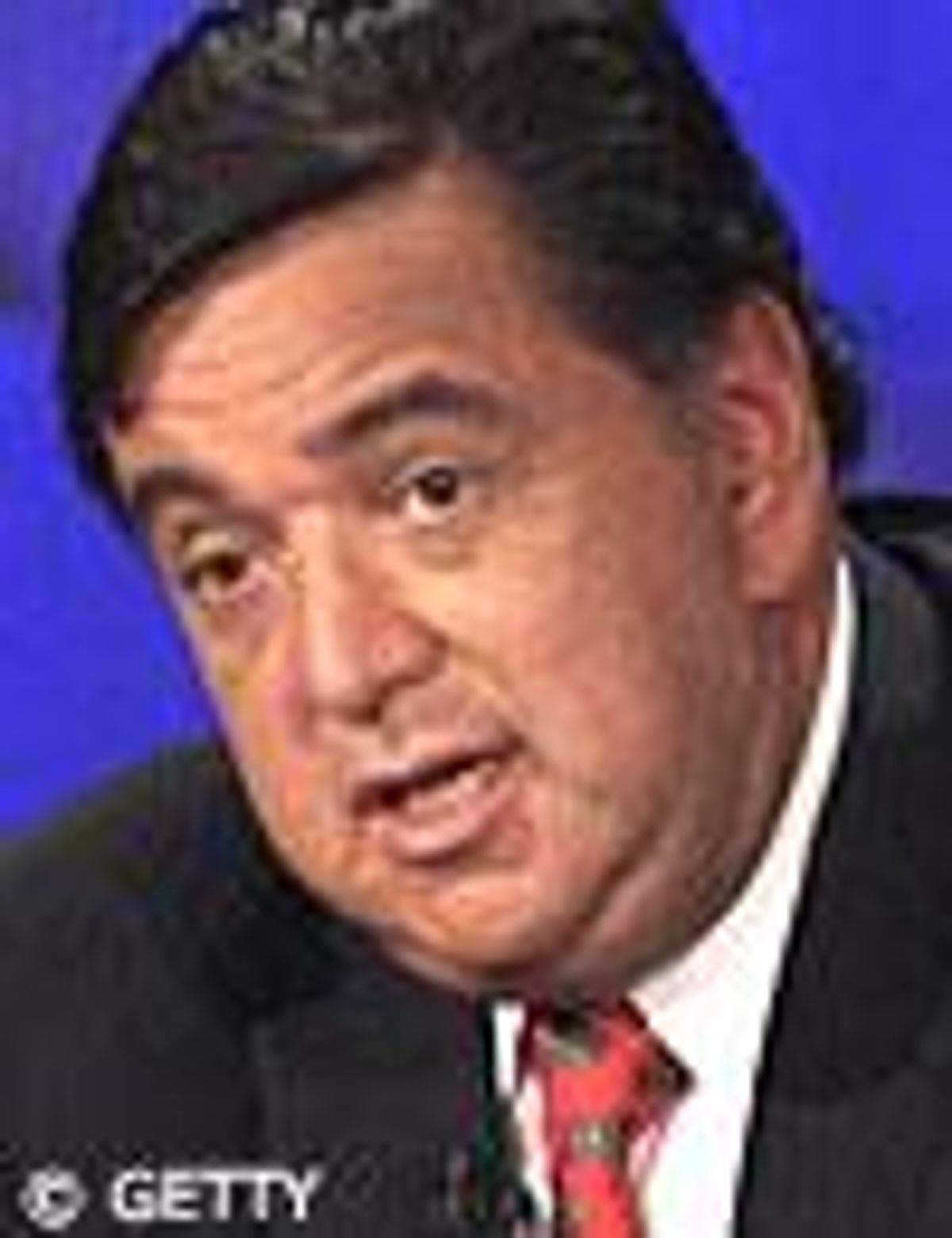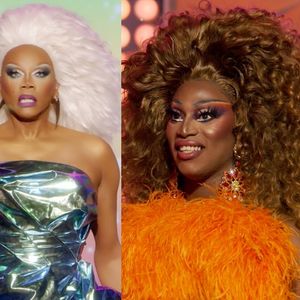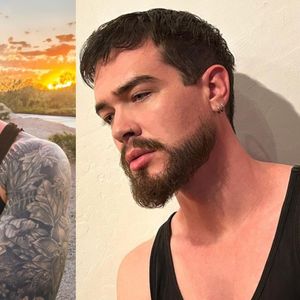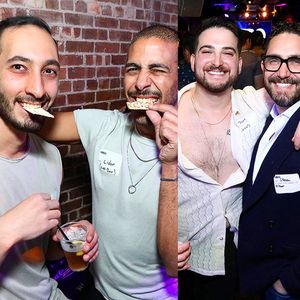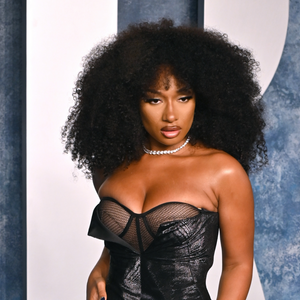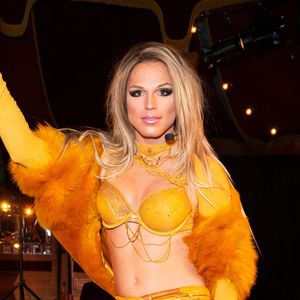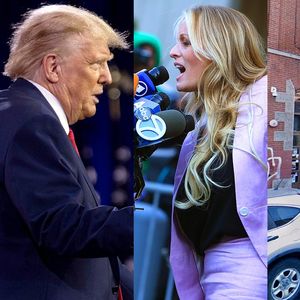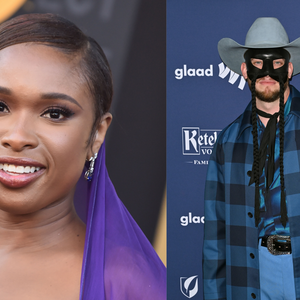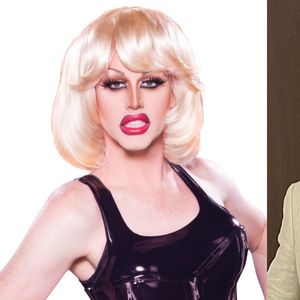After a
performance in Thursday night's HRC/Logo presidential forum
in Los Angeles that was universally panned by media
outlets including NPR and The New York Times,
New Mexico governor Bill Richardson requested an
interview with The Advocate to explain
what he was thinking when he said that being gay
was a "choice" versus a biological
predisposition.
Richardson
clearly wanted to make amends with the gays and lesbians,
but he seemed beleaguered after a long day of trying
to heal the wounds left by last night's forum.
Perhaps the most illuminating part of our
20-minute interview at The Advocate's
offices came at the end, during informal banter as the
governor prepared to leave. Referring back to a
question I'd asked earlier in the interview about
his possible lack of empathy for a fundamental LGBT
concern, he asked, "But you think I didn't come across
with much empathy [last night]?" It was a rare,
humanizing comment from a presidential candidate who
was clearly grappling with the chasm between how he sees
himself versus how others view him--in this case, gay
and lesbian voters.
The Advocate:What happened last night when you were asked whether
being gay was a matter of choice or biology and you said
that it was the former?Richardson: I misunderstood the question, and I
made a mistake in the way I answered it. I thought it was a
trick question. I made a mistake and I apologize.
I've always
understood that [being gay is biological], I just haven't
thought about that in a very long time. Again, I'm very
action-oriented. I deal with getting things done for
gay and lesbian people, as I have as a governor. And I
fully understand that it's something you're born with
and it's not a lifestyle choice. I've always understood
that, but when you're flying all night from New
Hampshire as I had--we're human too. We flew all
night to get here. That shouldn't be an excuse. I am here in
a symbolic visit to The Advocate to say I
misunderstood the question, I handled it in a bad way, and I
caused a lot of confusion. But my main message is that
I should be judged by my actions, on what I've done,
not words that don't accomplish anything, that had
been misunderstood.
You also said that if the New Mexico state
legislature passed a bill to legalize same-sex marriage,
you wouldn't sign it. Why?
What I would sign is a civil unions bill with
full marriage rights. That's what I would sign. But
that's not the issue. The issue is, what can I get
done in my legislature. I was unable in a special session to
get done a domestic-partnership bill, and we lost by one
vote in the regular session. But then I called special
session a few days later to deal with the full
domestic-partnership bill. No other governor has ever
done that. It failed, so I'm going to bring it up in January
again in the new legislative session.
As a purely hypothetical question, if the
legislature handed you a marriage bill, would you sign it?
I'm going to answer it hypothetically: It's not
going to happen. What I want to emphasize is that I
would be a president who recognizes that the country
is on a path to full inclusion, and I think what we need to
concentrate on is what is doable now. What is doable now is
the following: First, repealing [the Defense of
Marriage Act], which I said I would do. Secondly,
repealing "don't ask, don't tell." I voted to do that
in the Congress [Richardson is a former U.S. representative
from New Mexico] when I was the chief deputy whip. I
felt that was a vote of conscience. Third, repeal No
Child Left Behind, which has some diversity provisions
that basically discriminate against gay kids.
What I would also
do is a full civil unions bill with full marriage
rights. I think that is achievable with a combination of
Republicans and Democrats. A hate crimes law. I think
the country today needs to be brought along on a whole
range of these issues.
My message is
that I should be judged by my action and not by a word that
I misunderstood.
If you were elected president and you could change
something immediately for gays and lesbians by executive
order, what would you do?
Immediately, in the federal workforce,
nondiscrimination, as I did in New Mexico, on the
basis of employment, insurance, full partnerships for gays
and lesbians in the federal workforce.
So, basically, employment nondiscrimination and
partnership benefits for federal employees?
I think that could be done by executive order.
Now, unlike [what] Edwards [has said], you can't
repeal "don't ask, don't tell" by executive order.
You've got to go through the Congress because it was made
into a congressional act.
I understand what you're saying about your record
on LGBT issues, but I respectfully think you came off
last night as lacking a little bit of empathy for
gays and lesbians. Even with your record, can you
expect the community to get behind you if they perceive
you that way?
I became very engaged in gay and lesbian issues
when a good friend of mine, who was one of my workers
in my congressional campaign [in the early 1980s], by
the name of Billy Griego, got involved in helping me,
and he then died of AIDS. That's when I felt a real
recognition and empathy for gay issues, because of my
friendship with him. Years later, with the [state]
legislature, I named an initiative that I pursued, which
was more funding and a new structure to deal with AIDS at
the state level, the Billy Griego HIV Act.
Regarding the maricon comment you made
on the Don Imus show, the native Spanish speakers I've
asked all say it's a derogatory term for gays. But
you've indicated that maricon is just
a term for homosexuality and doesn't have a
negative connotation. Do you want to clarify?
I also said I shouldn't have used that word. It
was at the end of an interview and I was goaded into
doing that, and I shouldn't have said it. But in my
day, and I'm older than most, there was no such word as
faggot. It was more in the sense of being
demeaning to someone, more of a pejorative term that was not
given the connotation that it has now. But if you look
at the transcript of that show, I was goaded into
saying it because Imus was trying to stipulate that
I'm Hispanic. It was wrong and I apologize.
Any final thoughts, Governor?
I hope the gay and lesbian community supports my
candidacy and doesn't judge me on the basis of one
silly misunderstanding that I take full responsibility
for. They should look at the record and what I've done and
what I can potentially bring the country in pursuing equal
rights for everybody. I came here today to send this message.
Kerry Eleveld is the news editor of The
Advocate.
